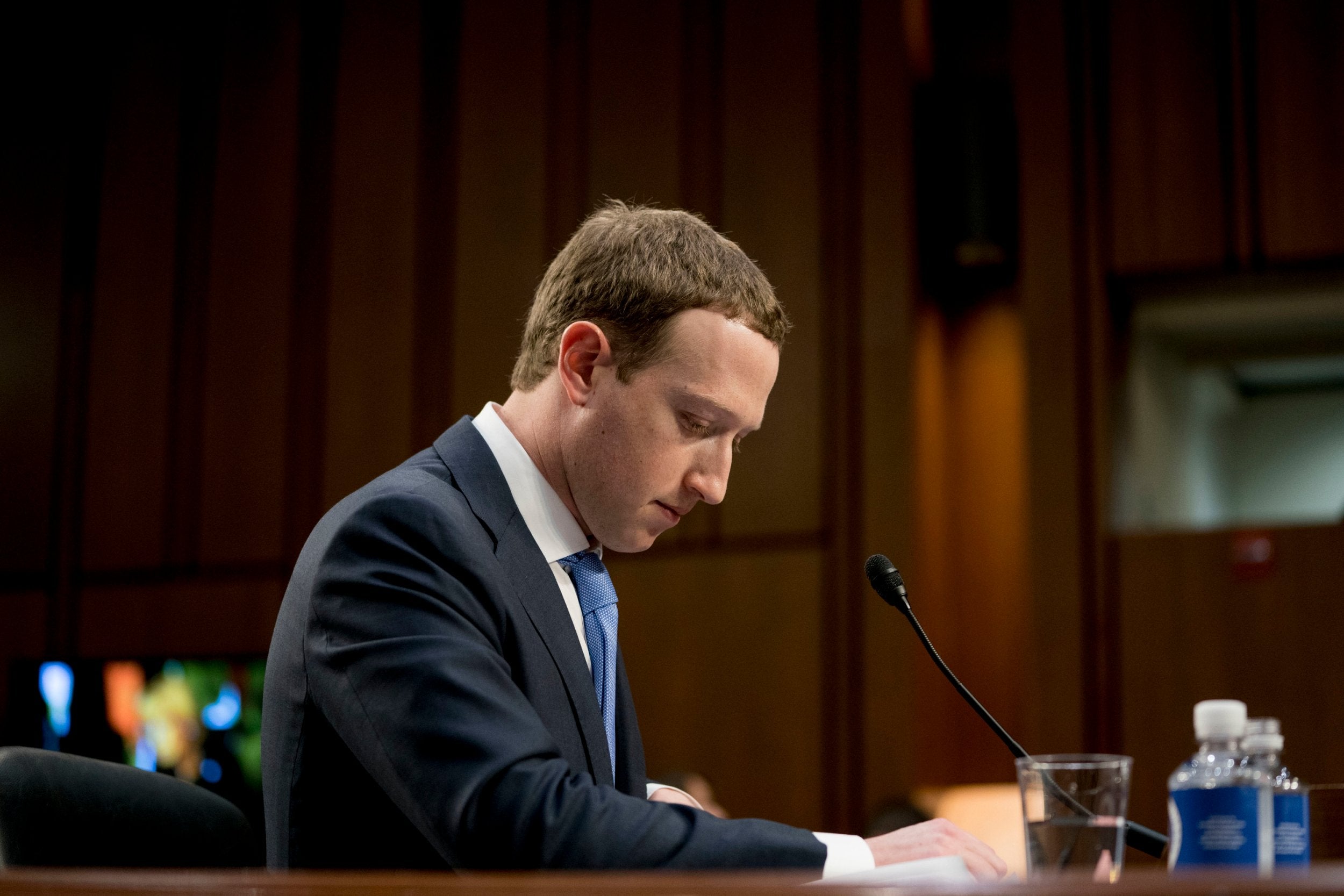Is Facebook finished? 'We're not far from Zuckerberg getting subpoenaed', privacy expert says
'We need to get him and other Facebook executives under oath and ask them questions they cannot dodge,' one professor says
Even for a company as serially scandalous as Facebook, it’s been a bad week for the social network. Separate investigations revealed that Facebook gave more than 150 firms access to people’s private messages, while also making it impossible for users to avoid location-based ads.
After months of fallout from the Cambridge Analytica scandal, US prosecutors also finally got around to filing a lawsuit against Facebook for its data sharing practices.
Individually, none of these would likely be enough to bring Facebook down, but some experts believe that, collectively, this could signal the end for the internet behemoth.
David Carroll, an associate professor at Parsons School of Design in New York, said this week may finally have dealt Facebook its “knockout” blow.
As an outspoken critic of the way Facebook uses people’s data, Prof Carroll is currently suing Cambridge Analytica under the Data Protection Act following the UK firm’s role in mining data from 87 million Facebook users for the purpose of political profiling during the 2016 US presidential elections. But the latest revelations that other tech firms were given access to people’s private messages was beyond even what he thought Facebook was capable of.
“Even as someone who is deeply sceptical of Facebook, I was surprised by the latest revelations,” he told The Independent. “I didn’t know it could be that bad in terms of scope and scale. But it all seems to fit with Zuckerberg’s master plan for global domination.”
The first lawsuit against Facebook regarding the Cambridge Analytica scandal, which affected more than 87 million users, comes courtesy of the attorney general of the District of Columbia. It is unlikely to be the last, given Facebook is also currently facing probes by the US Securities and Exchange Commission, the Federal Trade Commission and the Department of Justice – and that’s just in the US.
A relatively insignificant fine of £500,000 that was handed to Facebook in the UK may be dwarfed following investigations by the Irish data protection regulator, which are being seen as the first serious test of Europe’s new General Data Protection Regulation.
But with more than 2 billion users worldwide and an annual revenue of more than $40 billion in 2017, it will take more than a fine to have any significant impact on Facebook. Prof Carroll has called for Facebook CEO Mark Zuckerberg and other senior executives to be subpoenaed and thinks it might not be long before that becomes a reality.
“We need to get them under oath and ask them questions they cannot dodge. It will depend on the Mueller investigation. It’s imaginable additional facts come to our knowledge to justify Zuckerberg’s subpoena and we find out how much he knew and when. We need more to justify it but we’re not that far from getting there.”
The various scandals have prompted several campaigns to boycott Facebook, most recently from a civil rights organisation in the US.
The #LogOut protest, which began on 18 December, is being led by the National Association for the Advancement of Colored People (NAACP) after a report found a Russian influence campaign on the platform was working to suppress African-American voter turnout.
How much impact this, or the #DeleteFacebook campaign that began in March, will have on Facebook will depend on whether anti-Facebook sentiment is fuelled by the latest revelations.

For Prof Carroll, the report about Facebook sharing people’s private messages with other companies was “the straw that broke the camel’s back”, which finally saw him delete his Facebook account. ”I finally lost my patience,” he said.
But it is not so easy for some people to simply delete their accounts, particularly those in developing countries with limited internet access. Facebook has been targeting such areas in order to grow its user base through initiatives like Free Basics and Internet.org, which may offer some people their only way to communicate over the internet.
Zuckerberg angled it as a humanitarian effort to connect the world but critics said it was a barely disguised attempt at digital colonisation, locking people into Facebook and its various products.

It should therefore not be up to users to effect change through a boycott of Facebook, Prof Carroll said.
“Facebook has a monopoly over social relationships across their major platforms, which include Instagram and WhatsApp. For many people, particularly those in developing countries, Facebook and its various platforms is the internet,” he said.
“It’s either up to Facebook employees or law makers to affect change. Employees could protest, we’ve already seen people leave, and that can hurt Facebook if their talent leaves. Employees are the morale backbone of the company and they hold the power, so if it’s not legal pressure then it will be them that takes Facebook down.”
Join our commenting forum
Join thought-provoking conversations, follow other Independent readers and see their replies
Comments
Bookmark popover
Removed from bookmarks